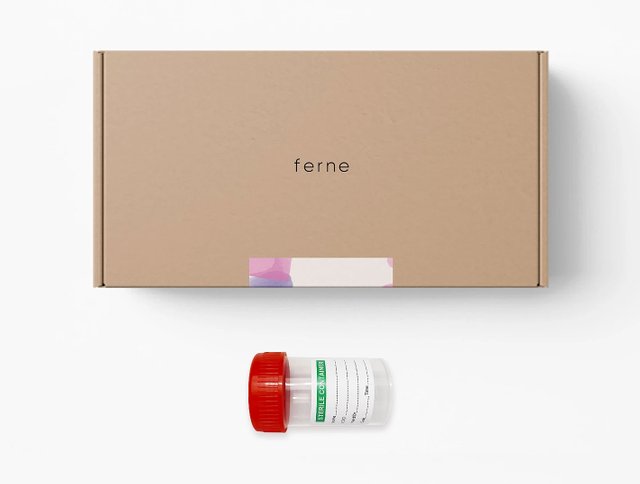
I’ve been pretty lucky so far not to have any problems with my health.
I realised how little I knew about my health when my fiancée one day said: “I think you might have a small lump on your right breast, you should get it checked.” I replied: “Oh, okay.”
I had no idea where to start or what kind of doctor to go to. I’m not sure if I was even worried, because I had never been sick, I wasn’t even sure if I had a history of breast cancer in my family. I made an appointment with a gynecologist, got checked, and, thankfully, nothing was amiss.
This little episode really got me thinking on how lucky I am to be in good health, and, to a certain extent, not immediately know which check-ups I should be doing regularly, simply because I didn’t have to.
Well, I might be lucky, but I shouldn’t be lazy, at least not about my own health. I should be in control of it and totally enlightened about my body and options. Because it’s not just breast cancer that a woman should be aware of, it’s also gynecological health and disorders, such as menstrual irregularities, urinary tract health, uterine fibroids, and other reproductive and fertility issues.
But I had always been this way, my first PAP smear was at 24, and the next at 32. I had let eight years slide in between the two visits, and I had not given any concern to my sexual health. And that’s probably not the best mindset to have.
Turns out, I’m not alone. A paper published last year showed noted that Asian American women have consistently reported the lowest cervical screening rates among all ethnic groups, according to CDC.
The start of Ferne

Xi Liu has made combating such lack of self-awareness her mission. She is the co-founder of Ferne, a digital sexual health start-up in Singapore that provides a user-friendly and affordable sexual health screening service delivered to the privacy of your home. Ferne aims to build a healthcare platform that facilitates the prevention of sexually-transmitted infections through education, content and user engagement.
Xi’s journey actually started in the United States. While living there, during a visit for a check-up, Xi got to chatting with her gynecologist, who recounted to her the times when he used to visit hospitals in China to help and train doctors on how to better communicate with patients. Asians are generally more conservative and keep private matters such as relationship, health, sex and money, well, private. Away from mahjong tables, hairdresser chairs and a nosy neighbour’s prickly ears, Asian women rarely discuss health matters publicly. Even more so when the problem is with sexual organs, and much less with a doctor. As a result, Asian women know close to nothing about their health. True enough, the gynecologist “roasted her” for panicking and visiting the clinic for what was a common period issue.
All jokes aside though, I can relate. Prior to starting della, I too, had little clue about my reproductive and sexual health. Sex education was not a big thing growing up, and around me, there was no such discussion or conversations.
On the next visit to her gynecologist, they talked about the matter again, and Xi realised that for most women, they “never learned this (sexual health and wellness) in school, they never learned this from ourselves, nor look it up online.” Over the course of the next two years, in casual conversations with her friends and other women, she discovered that most of them knew even less than she did, in fact, they turned to her for knowledge after her crash course in sexual health and wellness at the gynecologist’s clinic!
This discovery stayed in her mind, and when she was mulling over a switch from the corporate life to the self-employed one, starting a brand and platform to educate Asian women on sexual health and wellness seemed like a natural fit.
I don’t want anyone to feel the same way I did
As with many others, Xi learned to take care of her health after a traumatic experience.
Once, in the US, she had a small rash on her shoulder. She, as many of us would, proceeded to the pharmacy and got herself some antihistamines. For a full week, she did not leave her room. The rashes got worse and spread to cover her upper body.
Upset, in pain, and panicked, she spent a full day in agony looking for a dermatologist – a specialty she only figured out because she absolutely had to. At the clinic, the dermatologist informed her that she had oak poisoning and that she should not have used antihistamines to treat it. He gave her proper treatment, and the rash disappeared in days.
After this experience, Xi started setting up regular appointments for regular medical checkups, because, as she says, “I would never go back to that state again.”
Though the ordeal was short, that dreadful sense of helplessness is why she thinks a platform like Ferne is so important, for someone to keep track of their health: “Just because you’re healthy, doesn’t mean you don’t need a doctor.” Testing and screening builds awareness, awareness builds knowledge, and knowledge builds prevention, or in the case of diagnosis, better treatment plans.
I’m excellent at asking questions
In the beginning, as a new entrant into the health industry, and of sexual health no less, it was difficult to find medical professionals to partner up with, and to credit; something that may seem like a distant fact given the two-digit strong panel of various doctors and medical professionals that the company works with now. However, as a self-professed expert in asking questions, and armed with a curious mind, she just kept knocking on doors. Xi’s earnest nature and sincere desire to learn as much as she could about the industry, regulations, testing kits and all that comes with sexual health screening, soon made way to new friendships and a strong network.
Huh, what is HPV?
Ferne’s first product is a testing kit for the Human Papilloma Virus (HPV). HPV is the most common sexually transmitted infection; cervical cancer is caused by sexually acquired infection with certain types of HPV; types 16 and 18 cause 70% of cervical cancers and pre-cancerous cervical lesions. The kit comes with an optional complimentary doctor’s consultation, however should the user test positive for HPV, Ferne insists on a consultation with their doctor so the user is aware of the next steps to take. Xi points out that different women, based on factors like lifestyle and age, react to HPV differently, and the consultation is important because follow up care is not a one size fits all solution.
Initially, Xi found it difficult to promote the product, as HPV is not commonly known among women in Singapore. Cervical cancer, which is preventable through regular cervical screening at the recommended frequency, is the 8th most frequent cancer among women in Singapore, and the 7th most frequent cancer among women between 15 and 44 years of age.
Certain government initiatives have helped raise awareness about cervical cancer. For instance, in March 2019, the government announced that all Secondary 1 girls in national schools, including madrasahs, would be offered free vaccination against HPV. That helps, but is not enough. Xi strongly believes that education and content creation is the way forward in creating a mindset for us to take control of our sexual health.
First time entrepreneur, seasoned product builder
Though Xi is a first- time health entrepreneur, she is not new to creating products. In her previous life, she was a Product Manager at Amazon, and she used the knowledge she gained there to build Ferne. Her co-founder, Vivek Manoharan, holds a PhD in biomedical engineering and provides expertise to the technical and medical side of the business.
At the time of writing, Ferne is still in soft launch mode, but come 27 September, 2020, Ferne will release a new website and a suite of new products. Xi is heavily involved down to the placement of the text on the customer’s purchase card. She values customer feedback very strongly and with each purchase, she works hard to obtain user feedback on ease of using the product, comfort level, convenience level and other information to help her improve it. I know because the first time we spoke, she sent me a survey to fill up, asking some very important questions on screening knowledge and frequency.
Is she frazzled about the upcoming launch? Slightly. Is she anxious? Yes. Is she excited? Hell yes. She tells me that the end September rollout will include test kits, for, among others, gonorrhea and chlamydia, HIV and syphilis, yeast infection and urinary tract infection. After all the planning and hard work, she hopes that new and old customers will love their new products too.
Though I’m sure, she’ll ask us all in the next survey.